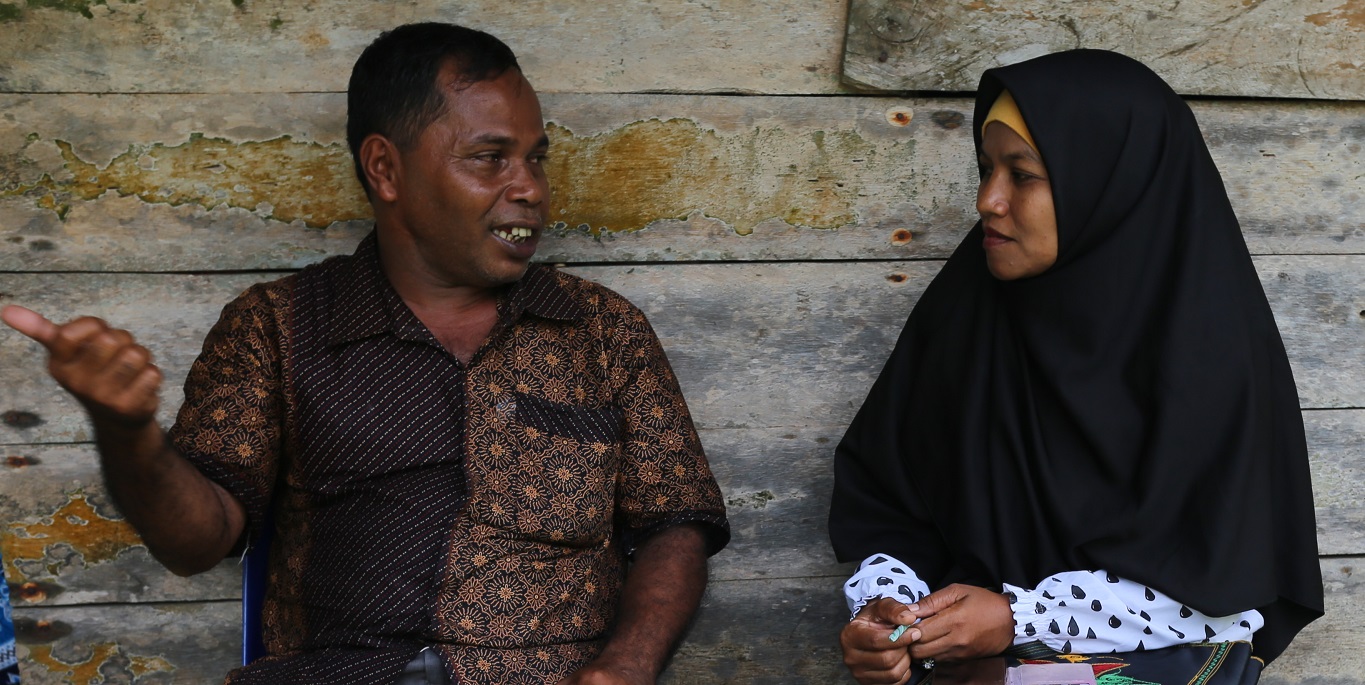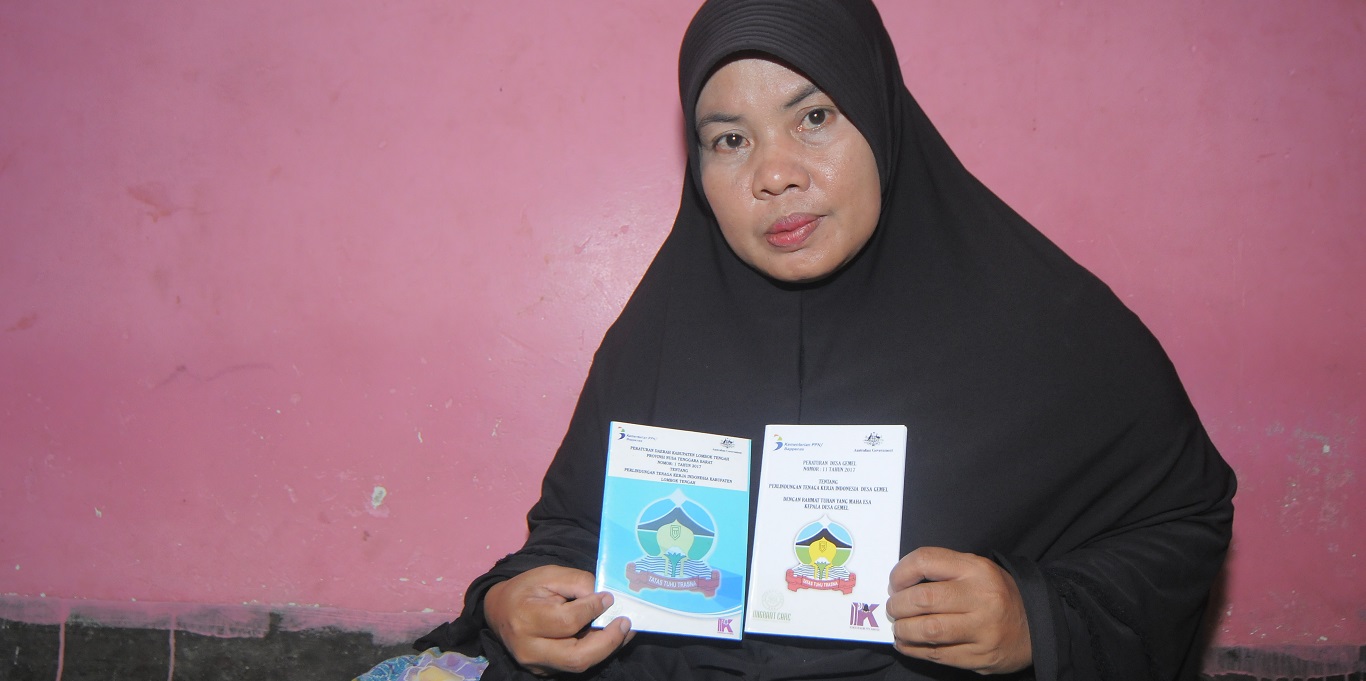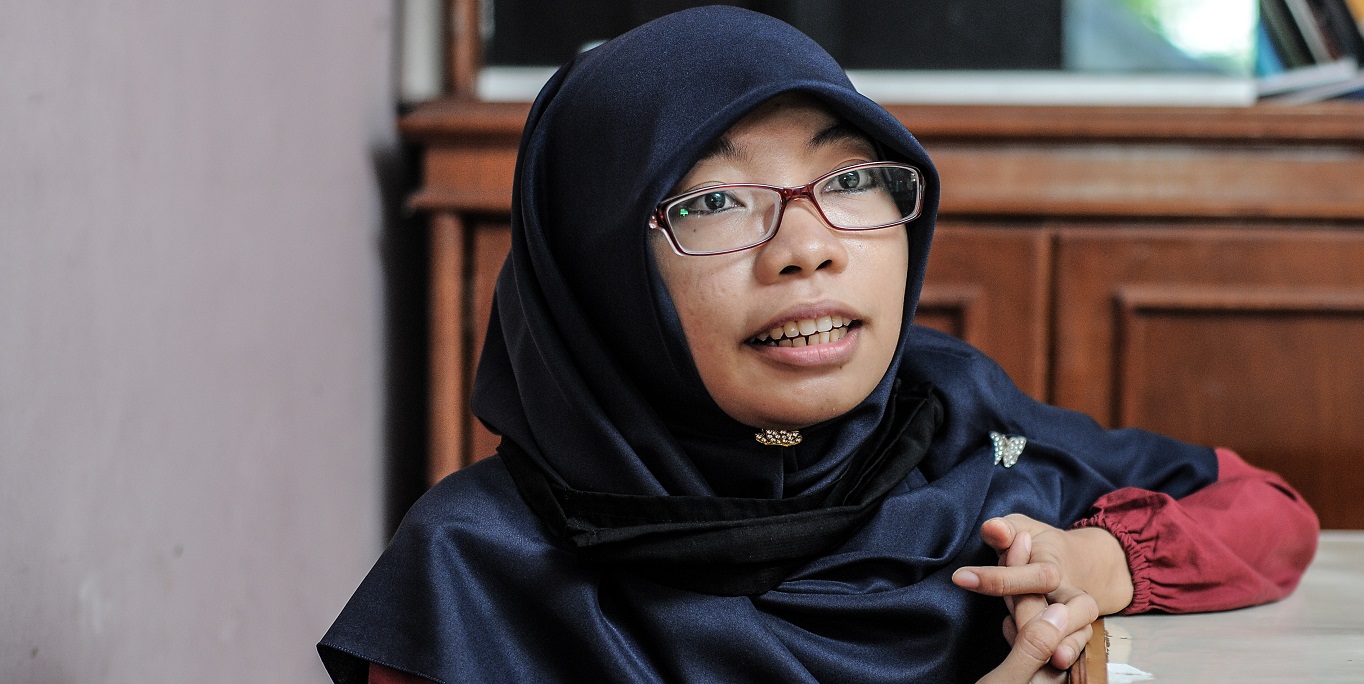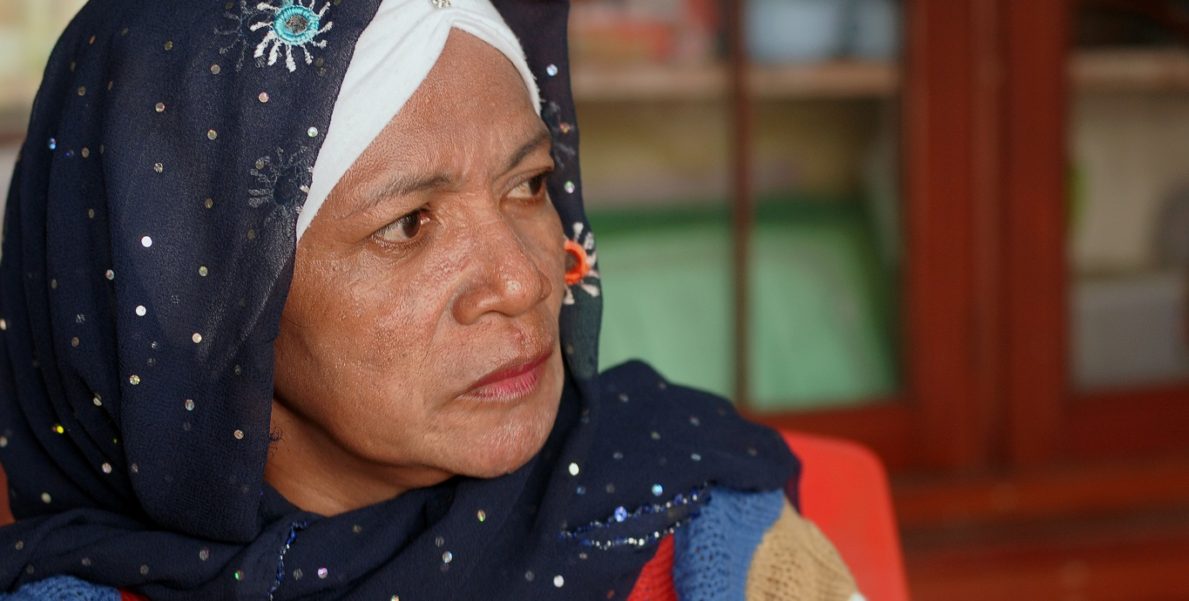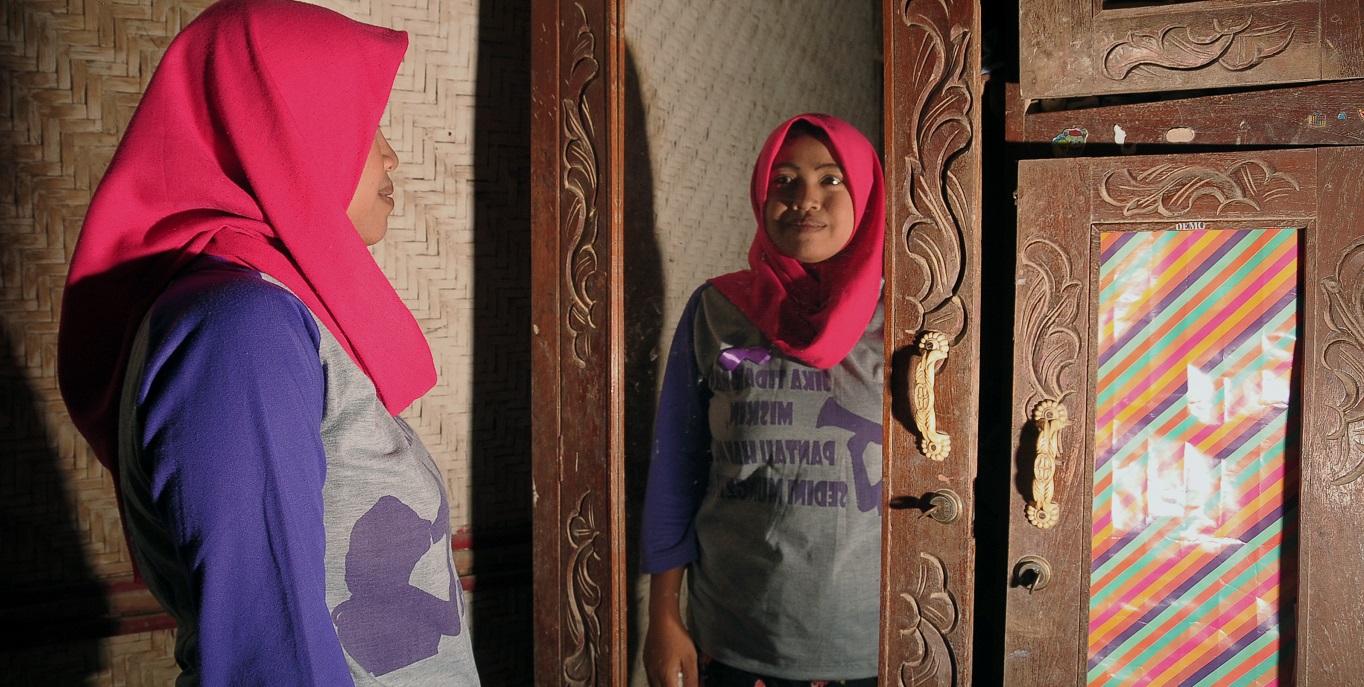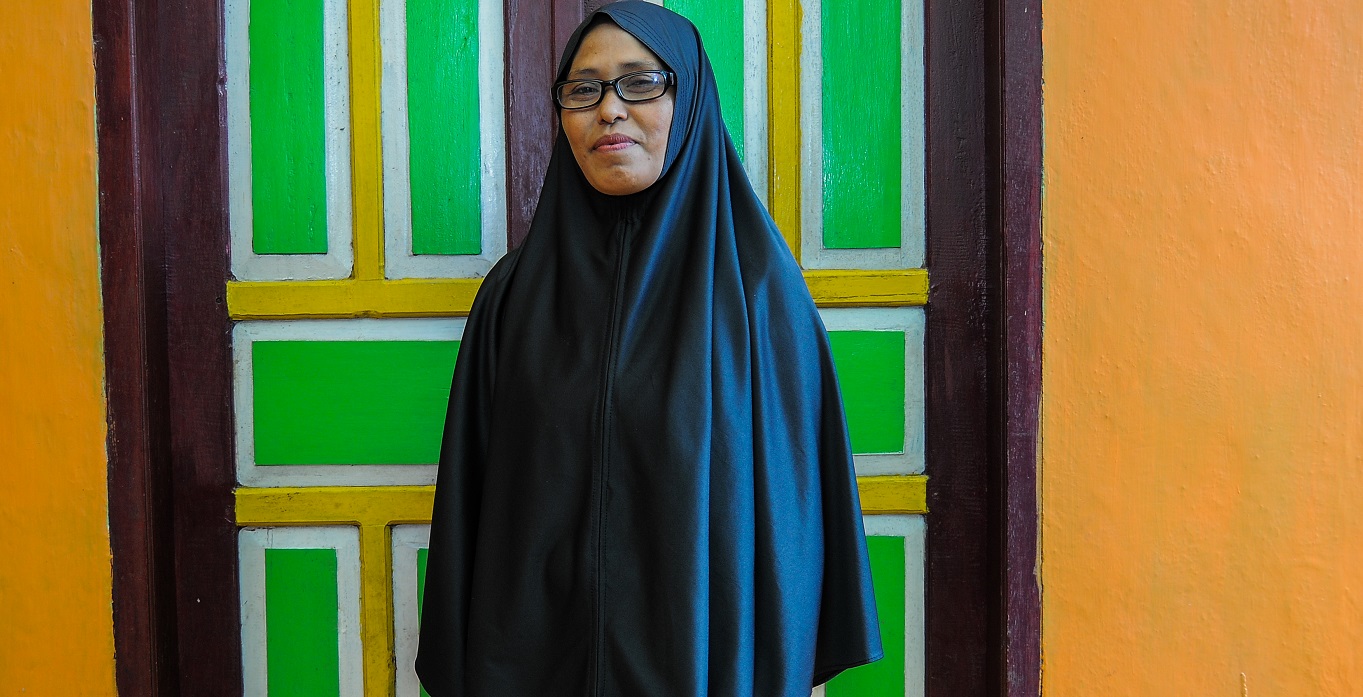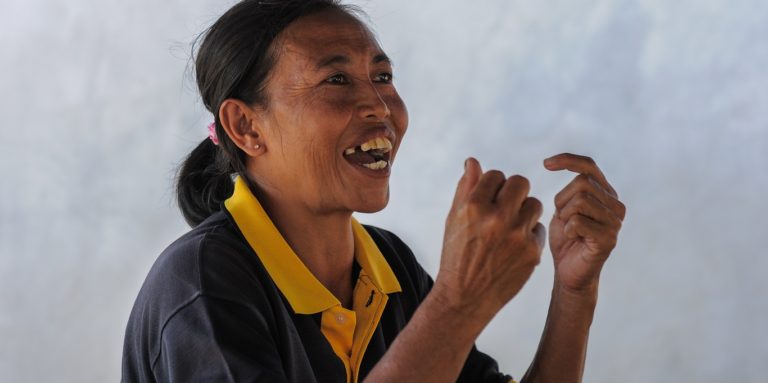Stories
Discussion with Religious Leaders in Merangin Promotes Understanding for Women’s Health Issues
30 December 2016Penulis: admin
The increasing incidence of domestic violence, unwanted pregnancy, juvenile delinquency and the negative side effects of technology have made the NGO called Merangin Women’s Alliance or Aliansi Perempuan Merangin (APM) make even more massive efforts to dissemniate information about Sexual and Reproductive Health Rights. The women’s groups who are members of APM collaborate with religious leaders in raising awareness on sexual and reproductive health rights among the public.
With the support of the MAMPU Program, APM holds routine discussions which involve some religious figures and traditional leaders. These discussions aims to make the role of women in the organization not be seen as negative and to make husbands understand sexual and reproductive health rights and apply them in daily life.
Sis Sumanto, a Muslim religious leader in Merangin, supports the APM program which raises issues affecting women at a regular discussion forum through the MAMPU program. According to Sumanto, a basic understanding of sexual and reproductive health rights exists in Islamic teachings. For example, regarding the post partum and menstrual periods during which husband and wife should be avoid sexual intercourse because it may cause illnesses for both. Also, we should avoid unprotected sex which can cause many diseases, especially sexually transmitted diseases.
“In any routine discussion that involves the community, whether we are women or men, we should touch upon the understanding of sexual and reproductive health rights in relation to religion, so that there is no misperception of the religious rules that people have come to understand. For instance, the idea that a husband may not allow a male doctor to assist his wife when she’s giving birth because they are not muhrim (permitted to be alone together). Actually, in emergencies, and for health reasons, it is permitted,” Sumanto explained.
“Fanaticism, which causes someone to do something without scientific basis as well as making them think it is taboo to discuss sex education, could harm themselves. So, anyone should be able to exchange ideas and discuss this with those who know more. The regular discussions held by the MAMPU program are the right forum for the community to share the understanding of sexual and reproductive health rights in the context of religion,” added Sumanto.
At each meeting, Sumanto and the religious leaders who are supportive of the APM program do not only discuss sexual and reproductive health rights, but also the root causes of domestic violence. “Improving the economy is something that should be carried out by each family member, because if they are economically sufficient, a family will be fine and there will be no friction that will trigger domestic violence. The family’s nutritional needs will be met, too,” said Sumanto.
Sumanto works as a School Supervisor for kindergarten and elementary schools in the Sub-district of Ranah Pamenang and has served as Chairperson of Muhammadiyah in Merangin District since 1995. He is also a member of the Association of Farmers Groups and Village Majlis Taklim (meetings about Islamic religious learning). The amount of organizational experience he has means he is well able to understand women’s sexual and reproductive health rights as well as their social rights . He also supports the progress women have made in actualizing themselves through activities outside the home or working to help the family economy. He even supports every husband and wife sharing roles in carrying out the household tasks.
“As long as it is not breaking any rules, it is recommended that women improve themselves through employment, and are allowed to join organizations if they keep their homes as their priority. If women understand about sexual and reproductive health rights and many other things, they can come up with solutions when they face a problem,” said Sumanto.
M. Sugianto, the Head of Dusun Tanjung Benuang is often present in meetings and discussions with religious leaders. He said that when the religious rules are not stated in the Qur’an or Hadith, many religious figures may have a misperception and may not be ready to accept new things.
“For example, many are against family planning because it is considered blocking the birth of a child. Family planning is actually not intended to limit or deny the birth of a child, but defer it until parents are ready to meet their needs. Because a child who is born also has the right to have their needs met in terms of health, education, nutrition, clothing and others,” said Sugianto.
Sugianto also said that role sharing in domestic matters, including regarding sexual and reproductive health rights, is already happening in his area. His father-in-law, despite being a male, often helps people when they give birth because he has had the skills to do so since he was young.
It’s time that all elements of society move to enable women to progress and let them acquire social rights and sexual and reproductive health rights so they can raise families which are good quality human resources. Sumanto hopes that in the future there will be many female religious figures who help male religious figures do their job.



